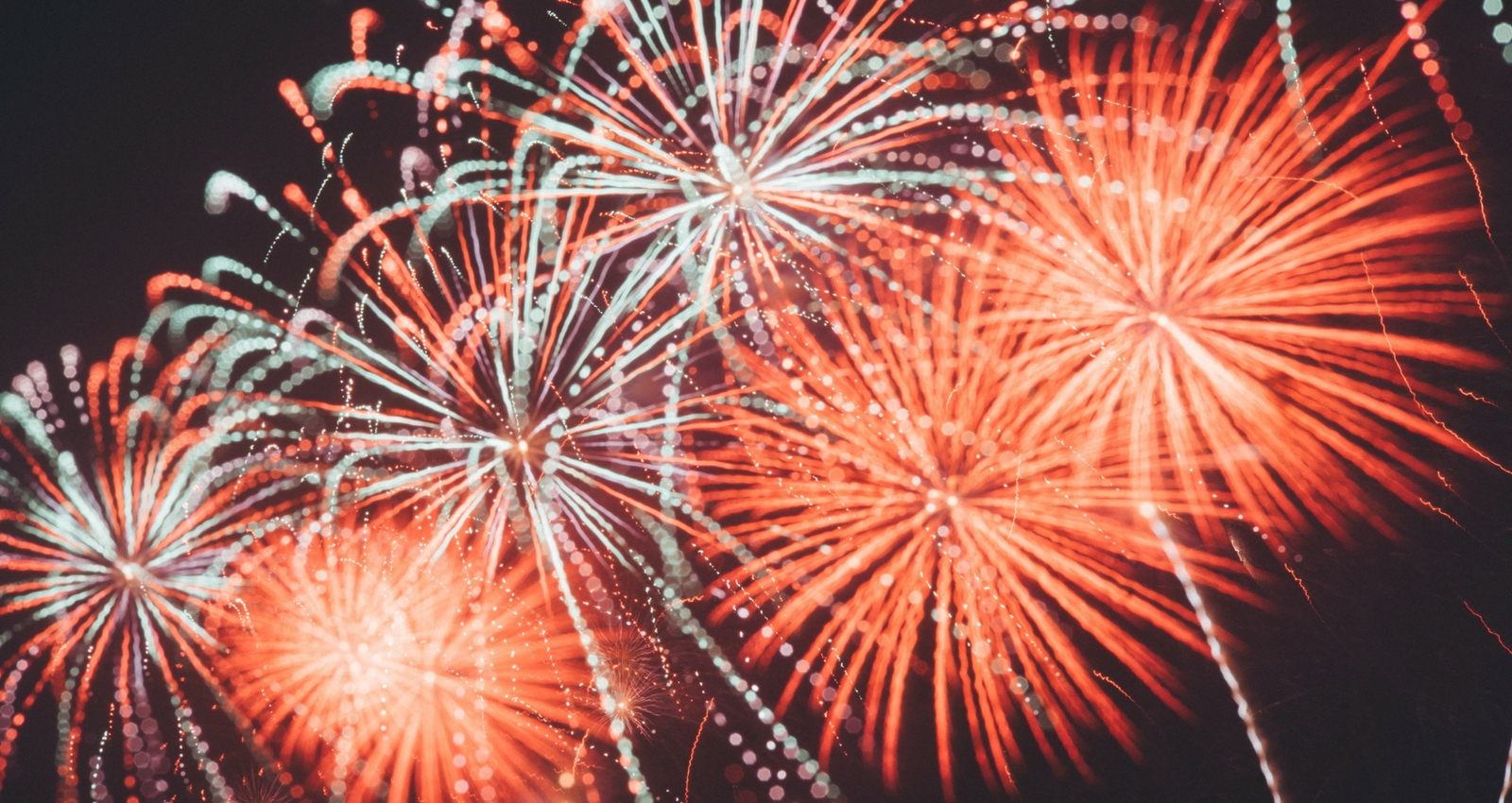Fourth of July Fireworks! Five Tips For Keeping Fearful Pets Calm

 Here’s a question that clients ask me every July: “What can I do to help my fearful pet cope with the 4th of July holiday fireworks?”
Here’s a question that clients ask me every July: “What can I do to help my fearful pet cope with the 4th of July holiday fireworks?”
I’ve found that the fireworks stress many livestock (especially horses) and pets (mainly dogs). Pets with heart problems, or those who are ill and weak, are most susceptible.
So here’s some helpful tips to keep your pets calm in the middle of a fire-storm!
1. Keep them confined in a safe place. Dogs and cats have a tendency to get spooked by the loud noises and will take off running through the neighborhood. This puts them at risk of getting lost and/or getting hit a by car, so it’s best to keep your pets confined in a small, dark, cozy area (like a bathroom, or in a small bedroom…somewhere indoors is ideal). I don’t recommend keeping dogs chained outdoors or keeping pets confined in a garage (too many fumes present from common chemicals stored in the garage).
Avoid taking your pets outdoors (beaches, parks, etc.) during the peak hours of firework celebrations (usually around dusk til midnight or so).
And keep your horses/livestock confined in a barn too — you don’t want them spooking in an open pasture with barbed wire fencing!
2. Create a calm, cave-like environment. You’ll want to create a cave-like atmosphere for your pets to feel most secure during this time. Close the windows, close the curtains, and turn on the central air or fans, and place your pet’s kennel (door kept open) in a corner of the room (covered by a blanket or towel) and allow your pet the option to go into or come out of the kennel. Whatever he/she is comfortable with. I’ve found that cats seem to feel most comfortable in the bathroom with a litter box, water, music, and toys…and lots of places to hide.
Playing soft music or turning on the TV (any kind of mellow ambient noise) will also help distract your pets from the loud bangs and pops of the fireworks. Classical music is great (like Bach or Mozart), or you could try playing animal (whale and dolphin sounds for dogs, bird sounds for cats) or nature (ocean, rivers, rain) sounds. Horses seem to enjoy country music — no joke! 🙂
3. Make sure your pets are wearing ID tags. In case your pet gets lost in the commotion of the holiday, make sure he or she is wearing a collar with an ID tag. The tag should include your pet’s name and your number, and possibly your address. This is a good practice even if your pet already has an internal microchip.
4. Exercise your dogs and tire them out. Here’s a tip from Honolulu animal behaviorist, Wendy Mah: “Exercise and keep dogs active during the day. Don’t let them laze around too much (but keep them out of the sun) and encourage them to walk, play, run, hike, etc. Tire them out! Ball and game playing using treat rewards works well. Then, when night arrives, they’ll be sleeping or be too tired to get too worked up about the fireworks.”
5. Try out calming agents. It’s best to try these out ahead of time so you can see how they affect your pet.
Drugs: Check with your veterinarian for recommendations. These may depress breathing and lower blood pressure. And pets should not be geriatric, have heart disease, high blood pressure (cats), or be on other medications. Valium in general is safer than Acepromazine which could cause a “freak out” reaction and/or reduce blood pressure too much!
Thundershirt: This is a cloth wrap that will put light pressure on your pet. This compression is thought to be calming. It was originally designed for pets that were fearful of thunderstorms but it could be equally effective for calming pets during fireworks displays. You can find these at most pet stores and some veterinary clinics.
Muscle relaxers:
- Magnesium (ascorbate, glycinate, citrate): Give 100 to 500mg orally, twice daily (may cause loose stools)
- Bath soak: You can also try soaking your pet in a mix of epsom salts and valerian and chamomile teas. Use warm water.
Serotonin enhancers:
- 5 HTP (L-typtophan): Give 25 to 100mg twice a day
- L-theanine: Give 100 to 500mg, twice daily
Nervines (calms nerves):
- B-complex B1,3,6
- Valerian (should not be taken with Valium)
- Chamomile
- Passion Flower
- Calms Forte Homeopathic (very safe)
- Oyster Shell: Give 1,000 to 3,000mg twice daily
- Dragon Bone
- Vitamin B complex
- Quiet Moments by NaturVet (chamomile, passion fruit, tryptophan and Bcomplex)
- Stress Away by VetClassics (chamomile, passion fruit, tryptophan and melatonin
- Anxiety and Stress Support by RESOURCES (B complex, melatonin, passion flower, chamomile, oyster shell, ginkgo, zizziphus, schizandra, melatonin, cat’s claw, and Chinese herbs). Especially good to use with dogs with heart problems or dementia.
Sleep inducers:
- Melatonin: Give ½ to 6 milligrams every 8 hours
Emotional / Disturbed Shen/ Heart Weakness:
- Bach Flower Remedies
These are just a few suggestions. Ask your local holistic vet for specific recommendations/dosages for your pet. Good luck, have fun, and stay safe!
